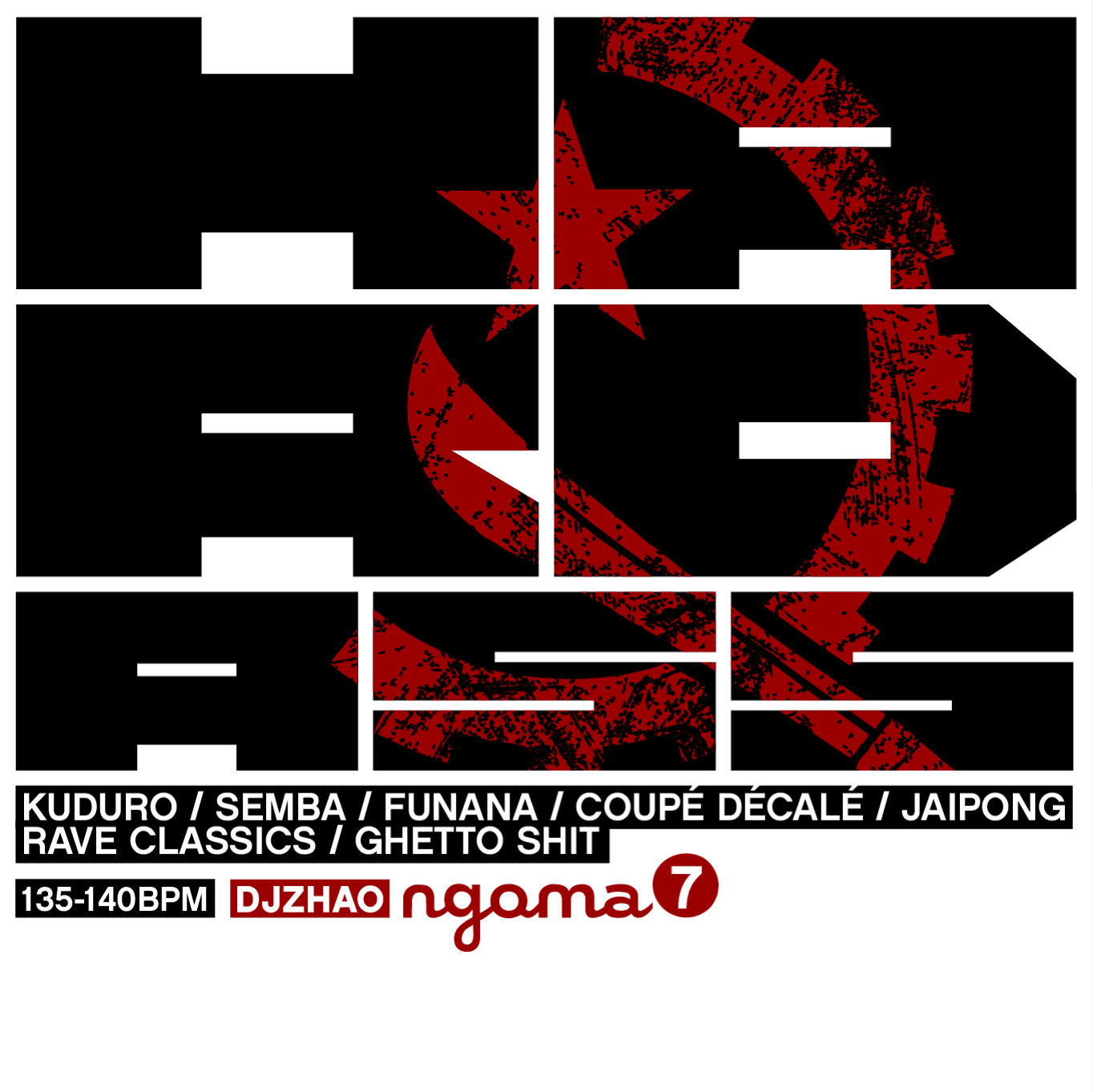
I don’t know what Kuduro means in the Kimbundu language of northern Angola, but its colorful translation in Portuguese is in some ways fitting of the music in both form and theme. Still, even though a lot of the music is hard, and a lot of the songs about fucking, the phrase is very much limited in describing the rich layers of word and sound, and becomes reductionist if taken only at face value. Kuduro can also be playful, humorous, soulful, emotional, ominous, scary, joyful, celebratory, and uplifting. It is also sonically adventurous in radical ways, fearless in its pushing and often destruction of dance music’s aesthetic boundaries, in ways often more bold and creative than sound-design obsessed electronic music from North America or Europe: from sweet accordions to reckless synths, from 8-bit game console palettes to near industrial noise, from samples distorted way beyond recognition to some of the deepest basslines in the world. And the vocals are just as wildly diverse: from “normal” singing to what sounds like children rapping to animalistic growling, grunting, yelling.
The many different flavors of Kuduro come from both its roots as well as later influence: mainly evolving from Batida rhythms (itself a fusion of African and Caribbean traditions) of the 1980s, Kuduro has since branched out to sometimes incorporate elements from many other styles including Cape Verdean Funaná, Coupé-Décalé from France and the Ivory Coast, Afro-Brazilian percussion, Western Hiphop and Techno. A concise example of this melting of tradition, current club culture, and ruthless sonic experimentation might be track 28: Batida – Tribalismo Com Sacerdote, in which what sounds like distorted Mbiras (thumb piano) coexist with Angolan rap, furious rave energy and absolutely mental synth lines which verge on noise.
And speaking of Western Hiphop and Techno, this mix adopts quite a few Detroit Ghetto-Tech and Chicago Juke samples, to draw parallels between inner-city Afro-diaspora underground and African urban sound. Because, at least from where i’m standing, the Parallels are many: relentless and insistent focus on rhythm; use of repetition past the point of monotony in becoming pure abstraction; fast tempo and intensity pushing the dancefloor near breaking-point; gritty, raw, and unpolished sound; and finally, ruthless libidinal energy which defies any attempts at restraint.
Also, besides a few entirely unexpected and thrilling use of cultural pastiche in the songs themselves, such as what sounds like Gamelan in Dj Clintonn’s track 09 and Arabic strings in Dj Znobia’s track 10, there are 2 of my mashups here: track 16 which incorporates Indonesian Jaipong drums and track 35 which transforms the orchestral version of an old rave number we all know. Mostly consisting of both older and newer Kuduro from Angola, this mix also includes a few songs from Cote d’Ivoire, Cape Verde, and Brazil. I tried to avoid Westernized hipsterized “blog-Kuduro” altogether, but 3 tunes feature non-African collaborating producers or remixers: their inclusion is testament of the strength of these tracks.
SINGLE TRACK: mediafire or megaupload
SEPARATE TRACKS: mediafire or megaupload

No comments:
Post a Comment